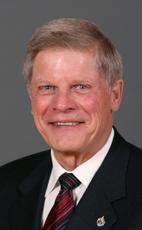Mr. Speaker, before I begin my compelling case I would like to bring to your attention a couple of passages from Maingot's Parliamentary Privilege in Canada , in particular pages 226 and 227, where he notes:
--contempt of the House has no limits. When new ways are found to interfere with our proceedings, so too will the House, in appropriate cases, be able to find that a contempt of the House has occurred.
At page 235, he states:
What constitutes an improper means of interfering with Members' parliamentary work is always a question depending on the facts of each case.
According to a Speaker's ruling from March 21, 1978, at page 3975 of Hansard , it states:
If the Speaker feels any doubt on the question, he should...leave it to the House.
The member is entitled to receive the benefit of the doubt.
That being said, over the past couple of years there has been increasing concern about the ability of the Coast Guard to perform its functions. Much of the information that outlines the impact that these cuts have had have come from concerned members of the Coast Guard.
Now in an effort to stem the flow of information to parliamentarians, the commissioner of the Coast Guard has ordered all staff members who talk with a member of Parliament to report their conversations within 24 hours. This effort at intimidation is intended to shut down the flow of information to myself and other concerned parliamentarians.
The directive that went to employees immediately raised concerns. Let me quote a September 2 memo from one Coast Guard manager. He said “I am getting inquiries about this form. It appears they are being denied access to their elected member of Parliament and feel this is violating their rights. Please provide me with more clarification on what is the intent of this form and when it should be used”
I think the reality here is that the rights of members of Parliament are being impeded, so to speak, by this order by the commissioner of the Coast Guard.
Surely, as I indicated, many of the issues and concerns that have been raised over the past year about the inadequacies of the Coast Guard and its inability to perform its functions have come from members of the Coast Guard themselves who are concerned about the public's safety.
There is no whistleblower protection, no protection for these members if they come to us as members and seek our assistance and try to assist us.
The commissioner of the Coast Guard is attempting to intimidate Coast Guard staff and, in effect, is preventing myself and other members of Parliament from carrying out our duties.
Mr. Speaker, if you find that there is a prima facie case of privilege I am prepared to move the appropriate motion.

